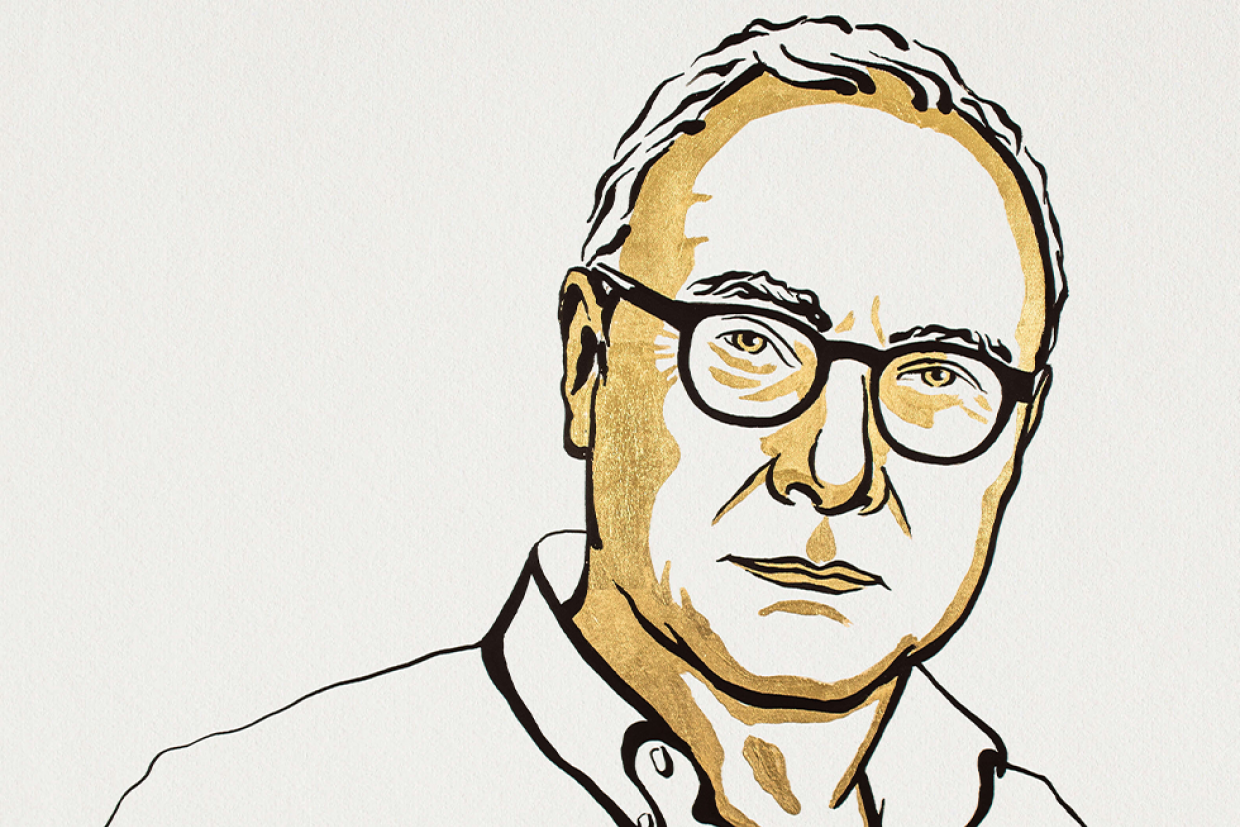What does a Nobel Prize winner do for an encore?
Well, if you are Dr. David Card, Artsci’78, LLD'99, you get right back to work. He’s just about to start a project looking at entrepreneurship among newcomers to Canada. And he’s wrapping up a look at how immigrants in Canada move up the job ladder.
Dr. Card, director of the Labor Studies Program at the National Bureau of Economic Research at the University of California, Berkeley, will share half the 2021 Nobel Prize for Economics with Dr. Joshua D. Angrist of the Massachusetts Institute of Technology and Dr. Guido W. Imbens of Stanford University. He was born in Guelph, Ontario and attended Queen’s University, where he originally wanted to study physics.
But, “I never got that far in physics.”
He turned to economics after helping his girlfriend at the time with some of her economics formulae and stumbling on a textbook written by a legendary Queen’s economist Dr. Richard Lipsey.
He was hooked. “I started reading and I thought it was pretty good, so I ended up taking an economics class,” he said.
“Since I was starting late, I couldn’t get into too many courses. The first two I took were Labour Economics (with Michael Abbott) and Income Distribution (with Charles Beach, now professor emeritus at Queen’s).”
The two were students of Princeton University’s Orley Ashenfelter. Abbott and Beach wrote Dr. Card a letter of recommendation and off he went to get his doctorate in New Jersey.
His choice led him to examine two key questions that the Nobel committee focused upon in their choice: the positive impact of a minimum wage on labour markets in New Jersey and the essentially positive result of an influx of immigrants on a local economy, in this case, the arrival in Miami of thousands of Cubans during the Mariel boatlift of 1980.
Dr. Card is not a “Big Think” kind of guy. In fact, he says, humbly, “I’m kind of small think.”
He seeks answers to “thousands” of long-standing unanswered questions in labour economics.
His interest is not driven by prevailing political debate.
“I don’t start out in the morning thinking, 'OK I’m going to fix this,’ because it is hopeless. If that is your goal you aren’t going to get anywhere. For instance, ... the U.S. still has quite low minimum wages.” Nobel winners famously get a phone call in the early morning hours. It was no different for Dr. Card. He has said that initially he thought it might be a prank by an old friend. But he quickly realized Stockholm was calling.
Nor was the call a bolt from the blue.
“Different universities have lists and I have been on (Berkeley’s) for the past few years."
“In advance, the university tells you that ‘If this call comes, we are going to call you right afterwards and you have to be on campus by 7 a.m.’ ”
After the win, “you are like the dog and pony show. ... You have to roll out.”
He won’t be going to Sweden due to COVID-19, but he is preparing a lecture.
“I think I am going to give a talk on the evolution of the idea that firms have some discretionary wage setting. It doesn’t sound very deep and interesting but it’s actually very fundamental.” And that, then, is the point.


